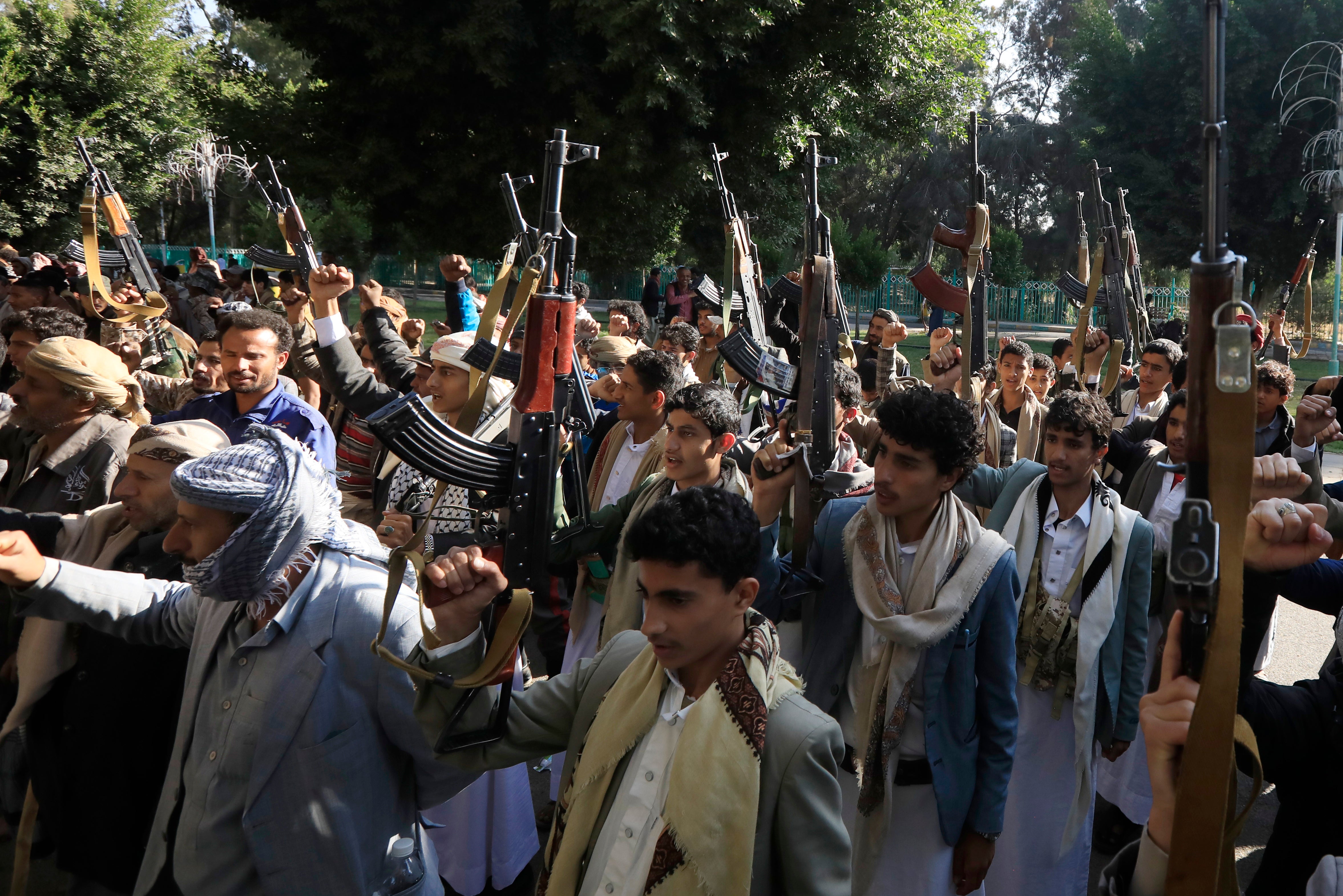US approves plans to directly target Iranian forces in response to attack that killed three soldiers
Decision to target Iranian personnel directly marks an escalation in regional tit-for-tat
Your support helps us to tell the story
From reproductive rights to climate change to Big Tech, The Independent is on the ground when the story is developing. Whether it's investigating the financials of Elon Musk's pro-Trump PAC or producing our latest documentary, 'The A Word', which shines a light on the American women fighting for reproductive rights, we know how important it is to parse out the facts from the messaging.
At such a critical moment in US history, we need reporters on the ground. Your donation allows us to keep sending journalists to speak to both sides of the story.
The Independent is trusted by Americans across the entire political spectrum. And unlike many other quality news outlets, we choose not to lock Americans out of our reporting and analysis with paywalls. We believe quality journalism should be available to everyone, paid for by those who can afford it.
Your support makes all the difference.The US is said to have approved plans to strike Iranian personnel and facilities in Iraq and Syria in response to a drone attack that killed three US soldiers in Jordan on Sunday.
US officials have characterised the response as a “campaign” that could last “weeks”, and will include both airstrikes and cyberattacks, according to NBC. It would target both the Iran-backed militias that carried out the deadly attack and Iranian forces that support them in the region, officials told ABC separately.
The decision to attack Iranian personnel directly in Iraq and Syria marks a significant escalation in a volatile regional power struggle that pits the US against Iran and a network of allied militias in the Middle East.
US forces in the region have come under frequent attacks by Iran-backed militias opposed to the US presence in the region for years, but those attacks increased dramatically following Israel’s invasion of Gaza, and Washington’s unyielding support for the war.
US bases have been struck by more than 160 rocket and drone attacks in Iraq and Syria since mid-October. US warships and international merchant vessels have also come under attack from Yemen’s Houthi rebels, who are also backed by Iran.
Concerns have been growing over the spread of violence across the Middle East linked to Israel’s war in Gaza, which was triggered by an attack by Hamas inside Israel in which around 1,200 people were killed and another 240 taken hostage. Israel’s war against Hamas, which is allied with Iran, has drawn in Iran’s allies from across the region – from Yemen’s Houthis to Lebanon’s Hezbollah. Israel’s war has killed more than 26,000 Palestinians, mostly women and children, according to the Hamas-run Palestinian health ministry.
The Biden administration has said repeatedly that it hoped to prevent a wider regional escalation as a result of the Israel-Hamas war but the intervention of the Houthis and the killing of US soldiers has resulted in a series of military confrontations that resemble a low-level regional war. The US now regularly carries out strikes against the Houthis in Yemen, as well as Iran-backed militias in Iraq and Syria.
When questioned by The Independent about whether the US classifies the fighting on multiple fronts as a war, White House National Security Council spokesperson John Kirby said he disagreed.

“There were attacks against our troops and facilities in Iraq and Syria well before 7 October – certainly in the last administration as well,” he said on Thursday. “And as for the Houthis, they can claim all they want that this is linked to Gaza but two-thirds of the ships that they’re hitting have no connection to Israel whatsoever. So, it’s just not true. It’s a falsehood.”
Three US service personnel were killed and 34 wounded last week after a drone hit a military outpost in Jordan known as Tower 22, on the border between Iraq and Syria. It marked the first time US soldiers have been killed by the attacks since the start of the Israel-Hamas war.
The White House determined that the attack was carried out by a loose alliance of Iran-backed militias in the region.
“We believe that the attack in Jordan was a plan resourced and facilitated by an umbrella group called the Islamic Resistance in Iraq, which contains multiple groups, including Kataib Hezbollah,” Mr Kirby said.
US secretary of defence Lloyd Austin said on Thursday that the military response to those deaths will be “multi-tiered”.
“Again, we have the ability to respond a number of times, depending on what the situation is,” he added.

President Joe Biden told reporters on Wednesday that he had decided on a response to the attacks but did not want an escalation in fighting.
“I don’t think we need a wider war in the Middle East. That’s not what I’m looking for,” he said.
Meanwhile, US forces struck a Houthi drone base in Yemen in the early hours of Thursday morning after determining it presented an “imminent threat” to merchant and navy vessels in the region.
The Pentagon said in a statement that it had conducted strikes “against an Iranian-backed Houthi UAV ground control station and 10 Houthi one-way UAVs” at around 1.30am local time.
The Houthis have repeatedly attacked merchant and US navy ships in the region since November.
The group’s spokesperson said the attacks on vessels in one of the world’s busiest shipping routes would continue “until the aggression is stopped, and the siege is lifted on the people of Palestine in the Gaza Strip”.

Join our commenting forum
Join thought-provoking conversations, follow other Independent readers and see their replies
Comments